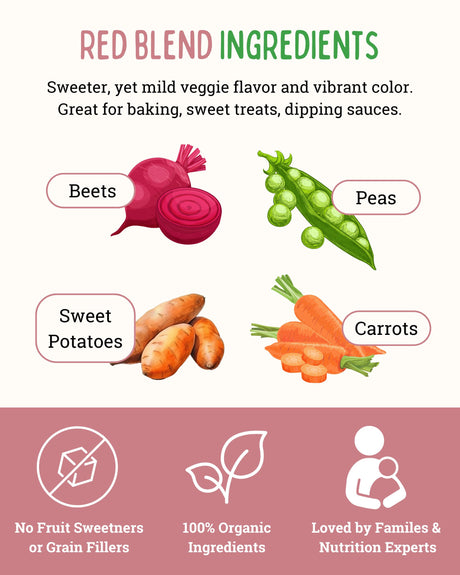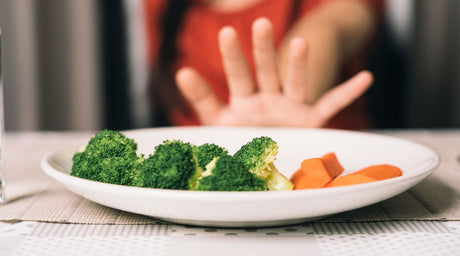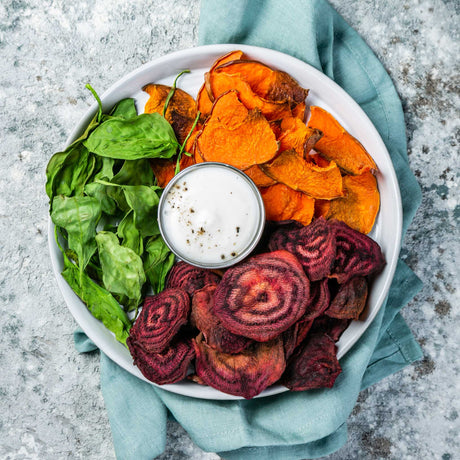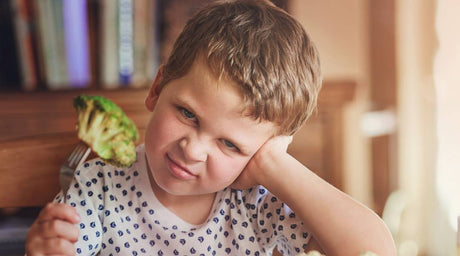More Than Just Quenching Thirst
Hydration is one of those fundamental health topics that, while simple in concept, carries profound implications for our well-being, especially for our little ones. Children's bodies, with their boundless energy and rapid growth, have unique hydration needs that differ from adults.
Ensuring they get the right amount of fluids is crucial not just for quenching thirst, but for supporting their overall health and development.
Now, enter the age-old debate: water vs. fruit juices. In one corner, we have the pure simplicity of water, nature's original hydrator. In the opposite corner, the sweet allure of fruit juices, packed with flavor and often touted for their vitamin content.
As parents, caregivers, or simply health-conscious individuals, we're often caught in the middle, wondering which beverage reigns supreme for our kids. This article aims to dive deep into this discussion, shedding light on the best options for keeping our children hydrated, happy, and healthy. So, let's pour a glass of knowledge and get started!
The Science of Sips: Why Hydration Matters
Physical Benefits of Proper Hydration
Every cell, tissue, and organ in our bodies requires water to function correctly. For our little ones, this is even more critical.
Proper hydration supports their rapid growth, aids in digestion, and ensures that their muscles and joints work smoothly. Think about those summer days when kids are out playing, sweating, and burning energy.

Water replenishes lost fluids, regulates body temperature, and helps keep their energy levels up. Without adequate hydration, kids can become susceptible to heat-related illnesses, such as heat exhaustion or heat stroke.
Cognitive Perks of Staying Hydrated
Beyond the physical, there's a cognitive side to hydration that's equally important. Ever noticed how hard it is to concentrate when you're thirsty? The same goes for kids.
Hydration plays a role in maintaining concentration, mood, and even short-term memory. A well-hydrated child is more likely to be alert in class, have better concentration, and be less irritable.
Guidelines for Daily Fluid Intake
So, how much is enough? While individual needs can vary based on factors like activity level and climate, there are general guidelines parents can follow:
Toddlers (1-3 years): About 4 cups per day.
Children (4-8 years): Roughly 5 cups per day.
Boys and Girls (9-13 years): Between 7-8 cups daily.
Remember, these are just guidelines. Always pay attention to your child's unique needs, especially during physically active days or hotter weather.
The Pure Essence: Celebrating Water's Natural Goodness
Nature's Perfect Beverage: No Additives Needed
Water is nature's gift to us, pure and simple. Unlike many beverages available on the market, water comes with no strings attached—no hidden sugars, no calories, and no artificial additives.
For parents seeking a straightforward and healthful drink for their kids, water is the unbeatable choice. It's the drink that complements every meal, fits every occasion, and never goes out of style.
Supporting Tiny Bodies, One Sip at a Time
Children's bodies are bustling hubs of activity. From supporting growth to aiding digestion, from regulating temperature to transporting nutrients, water plays a pivotal role in ensuring everything runs smoothly.
When kids are adequately hydrated, their kidneys function better, toxins are efficiently flushed out, and even their skin appears more radiant. Plus, with all the running, playing, and exploring, children need consistent hydration to replenish the fluids they lose.
Prioritizing Clean, Safe H2O
While water is a fantastic choice for hydration, it's essential to ensure that what our kids are drinking is clean and safe. Tap water can sometimes contain contaminants, so it's a good idea to invest in a quality water filter or opt for trusted bottled water brands.
Remember, while water is a universal solvent, not all water sources are created equal. Prioritizing purity can make a significant difference in the health benefits your child receives from each sip.
Fruit Juices Unveiled: Beyond the Sweet Sip
A Vitamin-Packed Punch: The Nutritional Side of Juices
Fruit juices, especially when freshly squeezed, can be a treasure trove of vitamins and minerals. A glass of orange juice, for instance, can be a morning dose of vitamin C, while apple juice offers a decent amount of potassium.

These nutrients are essential for children's growth and development, making fruit juices an attractive option for parents aiming to boost their kids' nutrient intake.
The Sugar Saga: Navigating Natural and Added Sugars
However, where there's fruit, there's sugar. While fruits contain natural sugars that come with fiber, vitamins, and other beneficial compounds, many commercially available fruit juices can be laden with added sugars.
These added sugars can quickly add up, contributing to potential health concerns like obesity and dental issues. It's crucial for parents to read labels diligently and opt for juices that state "no added sugars" or "100% fruit juice."
Weighing the Pros and Cons: Juice in the Dietary Balance
While fruit juices have their benefits, they also come with drawbacks. On the one hand, they can be a source of essential nutrients; on the other, they lack the fiber found in whole fruits, which aids digestion and promotes satiety.
Additionally, over-reliance on juices can lead to excessive calorie intake. For a balanced approach, consider offering fruit juices in moderation, perhaps as an occasional treat or mixed with water to dilute the sugar content.
Remember, while juices can complement a diet, they shouldn't replace the wholesome goodness of whole fruits or the hydrating power of water.
Water vs. Fruit Juices: A Liquid Showdown
Quenching Thirst: Hydration Efficiency Explored
When it comes to pure hydration, water takes the crown. It's the most efficient at replenishing lost fluids and maintaining the body's water balance.
While fruit juices can provide hydration, they also come with sugars and calories. Water, being calorie-free and sugar-free, offers hydration without any extras, making it the top choice for maintaining optimal fluid levels in kids.
Smile Bright: The Dental Health Dilemma
Dental health is a significant concern, especially for growing kids. Water, especially when fluoridated, can help strengthen teeth and prevent cavities.

Fruit juices, on the other hand, can be a double-edged sword. The sugars in juices, even if they're natural, can contribute to tooth decay, especially if kids sip on them throughout the day.
The acidic nature of some juices, like orange or apple, can also erode tooth enamel over time. Encouraging kids to drink water after having juice can help rinse away some of the sugars and acids, but water remains the safer bet for dental health.
Calories and Sugars: The Nutritional Numbers Game
While fruit juices can offer vitamins and minerals, they also come with calories and sugars. A cup of juice can sometimes contain as much sugar as a soda!
Water, being devoid of calories and sugars, provides hydration without any potential weight or health concerns. For parents mindful of their kids' sugar intake, water is the clear winner.
Penny Wise: Cost-Effectiveness Considered
In the long run, tap water is undeniably more economical than fruit juices. While the initial cost of a water filter or purifier might be a consideration, it's a one-time investment compared to the recurring expense of fruit juices.
Plus, with concerns about packaging and environmental impact, water (especially if sourced sustainably) proves to be both wallet-friendly and eco-conscious.
In summary, while fruit juices have their place in a balanced diet, water stands out as the superior choice for hydration, dental health, and cost-effectiveness. It's essential for parents to weigh the pros and cons and make informed choices for their kids' health and well-being.
Navigating the Juice Aisle: Making Healthy Choices
Pure and Simple: The 100% Fruit Juice Promise
When it comes to selecting fruit juices, the label matters. Opting for 100% fruit juice ensures that you're getting just that - pure juice without any added sugars or artificial ingredients.

These juices retain more of the natural vitamins and minerals found in whole fruits, offering a more nutritious sip. Remember, while the sugars in these juices are natural, they can still add up, so moderation is key.
A Lighter Sip: The Dilution Solution
A great way to enjoy the taste of fruit juice while cutting down on sugar and calories is to dilute it with water. This not only makes the juice less sweet but also increases the hydration factor.
For kids, this can be a gentle introduction to enjoying fruit flavors without overwhelming their palates with sweetness. It's a win-win: they get the taste they love, and you have peace of mind knowing they're consuming less sugar.
Beware of the Imposters: Fruit Drinks vs. Fruit Juices
Labels can be tricky, and not everything that looks like fruit juice is genuinely good for you. "Fruit drinks" or "fruit cocktails" often contain minimal real fruit juice and are loaded with added sugars and artificial flavors.
These can be far from the healthy choice they masquerade as. Always read the ingredients list and nutrition facts to ensure you're making an informed choice. Prioritize products that list fruit juice as a primary ingredient and steer clear of those with high fructose corn syrup or artificial flavorings.
While fruit juices can be a part of a balanced diet, it's essential to make informed choices. By selecting pure juices, considering dilution, and being label-savvy, parents can ensure their kids enjoy the fruity flavors they love in the healthiest way possible.
Making Hydration Fun: Tips for Upping Kids' Water Intake
Jazz It Up: Fun Cups and Straws
One of the simplest ways to make water more appealing to kids is by serving it in a fun and colorful way. Invest in some vibrant, child-friendly cups or water bottles adorned with their favorite characters.
Throw in some curly or patterned straws, and you've got yourself a hydration party! When water feels like a treat, kids are more likely to reach for it.

Stay on Track: Setting a Hydration Schedule
Just as we set meal and snack times, consider scheduling regular water breaks, especially on active days. This can be particularly useful for kids who get so engrossed in play that they forget to drink.
Setting a timer or making a game out of it ("Who can take the biggest sip?") can make these breaks something to look forward to. Plus, it instills the habit of regular hydration.
Lead by Example
Kids often mirror the behaviors they see around them. If they observe their parents and caregivers prioritizing water intake, they're more likely to do the same. Make it a family affair by having communal water-drinking sessions.
Cheers with your water glasses at dinner or have a family hydration challenge. When kids see that everyone values hydration, they'll understand its importance and be more inclined to drink up.
Incorporating these tips can make a world of difference in ensuring kids stay hydrated. Remember, it's not just about the quantity but also about creating positive, lasting habits around water consumption. Cheers to happy, hydrated kiddos!
Navigating the Juice Jungle: When is it Okay for Kids?
Occasional Delight vs. Daily Go-To
While fruit juices can be a delightful treat, it's essential to view them as just that – an occasional indulgence rather than a daily beverage.
Fresh water should always be the primary source of hydration for kids. Think of fruit juices as you would a dessert; they're great once in a while, but not something to be consumed every day. This approach helps in reducing excessive sugar intake and sets a healthy beverage routine.
Mealtime Pairing: A Dental Strategy
When kids do have juice, it's a good idea to serve it during meals. Why? Saliva production increases during meals, which can help neutralize the acids produced by bacteria in the mouth and rinse away food particles. By pairing juice with meals, you can reduce the potential impact of sugars on teeth, ensuring those pearly whites stay healthy.
Mastering Portion Control: The Art of Dilution
Just as with any treat, moderation is key. When serving juice, consider using smaller cups to naturally limit the quantity. Another savvy trick is diluting the juice with water.
Not only does this reduce the sugar concentration, but it also provides a more hydrating beverage. Over time, kids might even develop a preference for the milder taste of diluted juice, making it a win-win!
In the world of beverages, while water reigns supreme, there's room for juice in the mix. It's all about balance, understanding its place, and making informed choices for our little ones.
Hydration Harmony: Water & Juice in Balance
Water: The Undisputed Champion
At the heart of our hydration journey, water stands tall and unmatched. It's nature's drink, free from sugars, additives, and any hidden nasties.
For our kids, water isn't just a thirst quencher; it's vital for their growth, cognitive function, and overall well-being. As parents and caregivers, prioritizing water ensures we're setting them up for a lifetime of healthy hydration habits.
Navigating the Juice Aisle with Confidence
While water should always be the mainstay, there's a place for fruit juices in our kids' diets – when chosen wisely. The key is to be informed.
By understanding the nutritional content and being vigilant about labels, parents can make judicious choices. Opt for 100% fruit juices, be wary of added sugars, and remember: moderation is the mantra.
The Ultimate Goal: Thriving, Hydrated Kiddos
In the grand tapestry of parenting, every thread – every choice we make – contributes to the vibrant picture of our child's health. Whether it's the water they drink or the occasional glass of juice, our decisions shape their present and future well-being.
So, here's to making each sip count, to informed choices, and to raising a generation of happy, hydrated kids. Cheers to their health and ours!
Leave your comments below; we love to hear from you! And don't forget to follow EasyPeasie for more veggie info and convo on YouTube, Facebook, and Instagram! ~ThePeas













